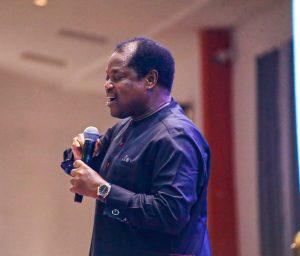Inflation in Africa’s biggest economy accelerated the most in Lagos, Ondo, and Kogi in June on a year-on-year basis, according to the Consumer Price Index report.
The report reveals that Lagos recorded the highest inflation rate of 25.75 percent over the 12 months ending in June, surpassing the national average of 22.79 percent according to the NBS report. Moreover, Lagos also witnessed the second-highest food inflation rate of 30.37 percent.
Ondo, Kogi, Oyo, and Bayelsa followed suit with 25.40, 25.23, 24.43, and 23.14 inflation percent respectively all of which outpace the headline inflation.
The report also put the urban inflation index at 24.33 percent, which is 3 percent higher than the 21.37 percent of the rural inflation index.
Ayo Teriba, an economist and CEO of Economic Associates (EA) said that the discrepancy between the urban and rural index indicates that the level of urbanization in a state directly impacts its inflation rate, which he noted is evident in the case of Lagos.
“Additionally, urban states are more susceptible to the impact of rising fuel prices, leading to increased transportation costs within urban areas. This situation is particularly evident in cities like Abuja and Port Harcourt,” he said.
“As for Ondo and Kogi, they serve as crucial transit hubs. Kogi, being neighbored by ten other states, and Ondo, with major transit hubs such as Ore and others, experience a significant volume of transportation activities.
“Consequently, these areas are greatly affected by any economic changes or fluctuations in the surrounding urban cities.”

The NBS highlights that the acceleration of headline inflation was primarily driven by the soaring prices of food and non-alcoholic beverages, which contributed 11.81 percent to the overall inflation rate.
Other significant contributors were housing, water, electricity, gas, and other fuel at 3.8 percent, clothing, and footwear at 1.74 percent, and transport at 1.48 percent.
The acceleration in inflation can be attributed to several factors. Subsidy removal, naira devaluation, and the implementation of a value-added tax on diesel imports are causing further spikes in the prices of goods and amplifying a cost-of-living crisis in Africa’s biggest economy.
The average price of petrol has surged by 174.6 percent, from N191.8 per litre to an alarming average of N526.7 per litre.
Furthermore, the process of foreign exchange (FX) unification has led to the depreciation of the official exchange rate, prompting price adjustments to align with the prevailing exchange rates.
Naira exchanged at N520 to a dollar at the black market in January and skyrocketed to N870 to a dollar as a result of dollar scarcity owing to the recent devaluation of the naira.
Read also: Nigeria faces catastrophic food insecurity on accelerating inflation
Surging inflation typically compels consumers to curtail discretionary spending as the costs of essential commodities like food and shelter surge. However, Nigerian consumers have displayed remarkable resilience despite grappling with inflation levels not seen in decades.
In 2022, Lagos ranked 55th globally as one of the most expensive cities for international employees, according to the 2022 Mecer report.
Other states in the top 10 are Ogun, Delta, Anambra, Abuja, and Rivers with inflation rates of 24.29, 24.21, 24.19, 24.14, and 24.06 percent respectively.
BusinessDay
















